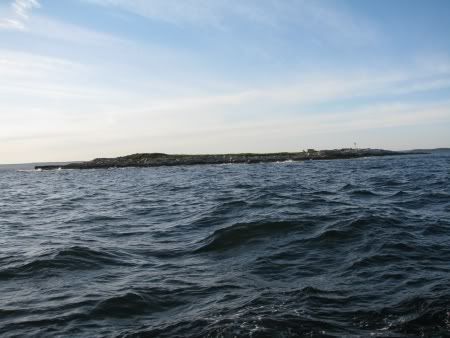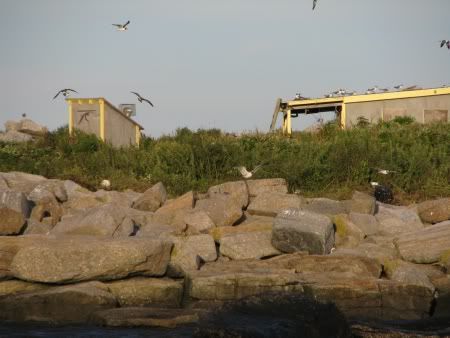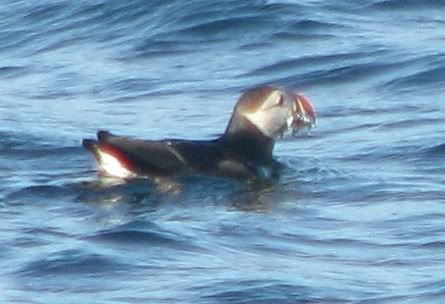In Maine, people don't eat puffins any more. Instead, thousands shell out good money for the chance to see one of the clown-faced birds from the rocking deck of a tour boat. But there was a time when people took the puffins so systematically that by the early 1900's many of their nesting colonies on Maine islands were gone. Who knows the exact date when that last puffin may have returned with the hope of finding a mate and raising its chicks in a dark crevice under the shores jumbled rocks. That day did eventually come to Eastern Egg Rock, a low 7-acre island five miles off of mid-coast Maine. Hundreds of years of people shooting and netting seabirds and taking their eggs without thinking of the sustainability of the resource at last left the island devoid of most seabirds. By the 1960's only a few gulls nested amidst the low vegetation in the center of the island and a handful of the puffins small cousin -the Black Guillemot - nested in the jumbled rocks around the perimeter.
Fortunately for puffins, a host of other seabirds, and all of us - a person with a dream for what many thought was an unattainable conservation benchmark arrived on the scene. His name was Steve Kress and now 36 years later Steve is still on the scene. He and his team, at summer's peak sometimes counting more than 30 staff and volunteers, now watch over three puffin nesting colonies and more than a dozen other seabird nesting islands with thousands of terns, hundreds of puffins, and a variety of other birds . The puffins were the hardest to bring back because it required flying puffin chicks taken from abundant colonies in Newfoundland the more than 500 miles to Maine, ferrying them out to the islands and then hand-rearing them over the summer a blended fish and vitamin cocktail several times a day! The most amazing part of the story is that Steve, his family and supporters had to do this for nine years before they coaxed a pair to stay and nest and eventually make the beginnings of a new colony.
Every summer we like to take the Puffin Watch boat out to Eastern Egg Rock to be reminded of the kinds of conservation successes that are possible if you can dare to think big and not give up.

Puffin Watch Boat Ride
Credit: Jeff Wells

Research Station on Eastern Egg Rock, Muscongus Bay, Maine.
Credit: Jeff Wells.
It was almost the last day of August this summer when the family and I made our way down to the wharf at New Harbor, Maine where the Puffin Watch departs. As we motored out of the harbor, the captain announced that the season was winding down. More and more nestling puffins were leaving their cozy (and presumably pretty smelly) burrows for their first experience in the open sea where they would spend the rest of their lives. We did see a single puffin, an adult that flew in and landed near the boat with a fish in its bill for its chick hidden somewhere in the rocks. By the next day, the chick had left and the puffins were done for the season - a successful season as we learned that there had been a record number of nesting pairs this year!

Atlantic Puffin! The last one of the season.
Credit: Jeff Wells
Below are a few short Youtube videos of my puffin watch trip.

